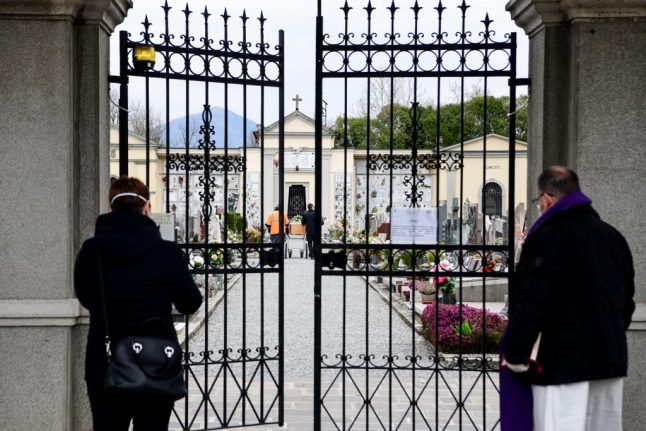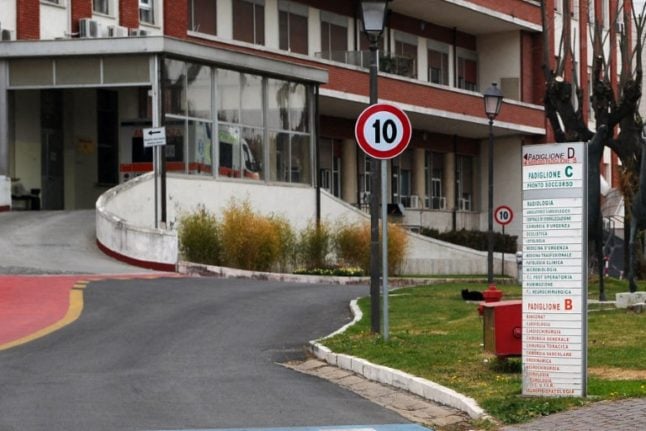Another 601 people have died from the COVID-19 virus since Sunday night, Italy's Civil Protection department announced on Monday evening, down from 651 in the previous 24 hours and a record 793 the day before that.
The number of new infections also rose at a slower rate: by 3,780 on Monday compared to 3,957 on Sunday.
Another 480 people were confirmed to have recovered, bringing the total to 7,432.
ANALYSIS: When will the coronavirus epidemic in Italy peak?
That leaves Italy with 50,418 active cases of the new coronavirus, including 20,692 patients in hospital and 3,204 in intensive care. The remaining 26,522 people infected are self-isolating at home.
In total Italy has now confirmed 63,927 cases of the virus since the outbreak began, 6,077 of them fatal.
“This is an extremely important week to assess the evolution of the epidemiological curve,” said the head of Italy's Higher Health Institute (ISS), Silvio Brusaferro.
“Our task is to avoid the curves that we've seen in the north occurring in the south.”
LATEST NEWS:
- UPDATED: What are Italy's tightened coronavirus quarantine rules?
- Nearly 8,000 doctors volunteer for Italy's coronavirus task force
- Here are the businesses that can stay open under Italy's latest quarantine rules

Photo: Carlo Hermann/AFP
The majority of Italy's cases have been in the north, mainly in the region of Lombardy where the first cases of community transmission were recorded in late February.
However, authorities are concerned that people who have travelled from north to south since then have spread the virus to Italy's poorer southern regions.
“The curve doesn't seem to be rising in the south, but in the press I've seen pictures of streets full of people, things we're not seeing elsewhere,” said Brusaferro.
“If our attitude is rigorous and united throughout the country, there's a concrete possibility that we won't see the curve [in the south] following a similar path to that in the north. But if we're not rigorous, trends don't depend on latitude but on our behaviour.”
READ ALSO: How authorities are battling to keep Italians at home
All 20 Italian regions have now reported at least one death linked to coronavirus, including sparsely populated Basilicata in the south which announced its first fatality on Monday.
More than half of the latest deaths – 320 – were in Lombardy, which has now had 3,776 fatalities among 28,761 cases.
Emilia Romagna (892 deaths as of Monday), Piedmont (315), Liguria (212), Le Marche (203) and Veneto (192) remain the next worst affected regions.
Experts have predicted the number of cases will peak in Italy at some point from March 23 onwards – perhaps in early April – though many point out that regional variations and other factors mean this is very difficult to predict.



 Please whitelist us to continue reading.
Please whitelist us to continue reading.
Member comments